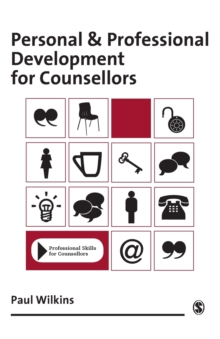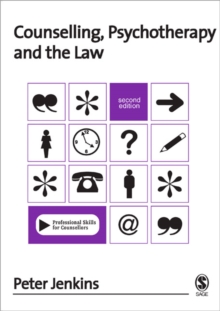
Time-Limited Counselling EPUB
by Colin Feltham
Part of the Professional Skills for Counsellors Series series
EPUB
Description
`Excellent... [the book] explores the "provision of effective counselling with limited resources and under strict time pressures"... with some excellent writing on the nature of time and attitudes to time in counselling and psychotherapy... the evidence in favour [of short-term counselling] is put strongly. Colin Feltham favours it as an approach of choice for certain clients, which should co-exist with (rather than adversarially seek to oust and replace) longer-term therapy... he draws from a wide range of literature, while identifying those key ingredients, skills and strategies that he has found especially significant. He also discusses some of the different contexts in which this work operates... Many of the questions and issues he poses... will be picked up most productively in training and supervision sessions' - Counselling, The Journal of the British Association for Counselling and Psychotherapy
Time-limited counselling - that is, the provision of effective counselling with limited resources and under strict time pressures - is becoming increasingly important as the demand for counselling increases, and the management of waiting lists and costs becomes a crucial concern.
In this clearly written book, which incorporates useful, illustrative examples, Colin Feltham outlines the specific practical and technical skills, strategies and knowledge counsellors must have in order to undertake time-limited counselling. Following an examination of the client's induction into counselling, he describes the most appropriate models for different clients and problems. Further chapters assess the management of time-limited counselling in different settings - including private practice - and look at research, training and supervision issues.
Squarely addressing the objections to the use of, and real problems in, the practice of this short-term therapeutic paradigm, the author argues that time-limited counselling can be justified not only on economic grounds but also ethically, philosophically, clinically and with reference to consumer preferences. He also identifies the common factors in successful short-term work that span different theoretical orientations.
Information
-
Download - Immediately Available
- Format:EPUB
- Pages:192 pages
- Publisher:SAGE Publications
- Publication Date:11/12/1996
- Category:
- ISBN:9781446239186
Other Formats
- Paperback / softback from £43.45
- Hardback from £158.00
- PDF from £34.84
Information
-
Download - Immediately Available
- Format:EPUB
- Pages:192 pages
- Publisher:SAGE Publications
- Publication Date:11/12/1996
- Category:
- ISBN:9781446239186










